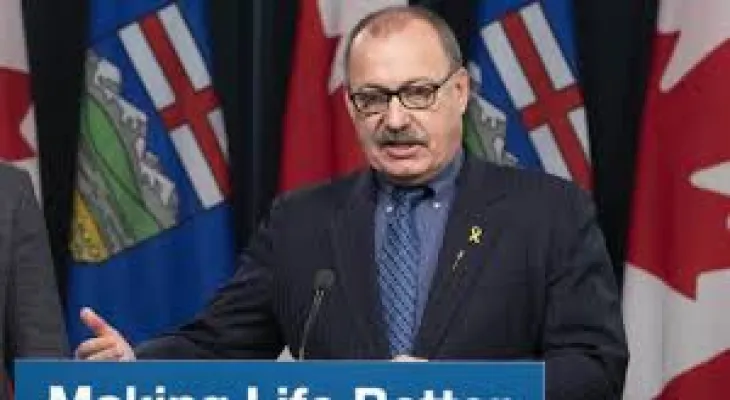Search here
Newspaper
Search here

Arab Canada News
News

Published: April 26, 2024
The new bill is set to give the Alberta government more power over municipalities, including granting the cabinet the authority to dismiss council members from their positions and forcing councils to repeal internal regulations that the province does not favor.
Bill 20, concerning amendments to the Municipal Government Act, was introduced to the legislative assembly this Thursday afternoon.
The bill will also allow for the establishment of municipal political parties, but it comes in the form of a pilot project that only affects Edmonton and Calgary.
Bill 20 proposes several other changes to the Local Authorities Election Act and the Municipal Government Act to strengthen the province's authority over municipalities.
If passed, the bill will allow the cabinet to call for a public referendum on the fate of municipal council members, or even go so far as to unilaterally remove them from office if deemed in the public interest.
There are no legislative safeguards or time limits on when this can occur, but the decision can be appealed to the King's Bench.
Municipal Affairs Minister Rick McIver insisted that this provision would be rarely used.
He told reporters at a press conference before the meeting, "First and foremost, I hope that never happens. But secondly, if it does, the cabinet will really have to provide a compelling explanation to the public." Introducing the bill.
"I believe the public will judge the cabinet kindly or harshly depending on the facts and circumstances surrounding that decision."
The cabinet has the authority to compel municipal councils to amend or repeal land use regulations and statutory plans for 30 years, and Bill 20 expands this authority to include all regulations enacted by councils.
McIver stated that the current amendment authority has never been used, so the public should not be concerned about the government having an "itchy trigger finger."
The cabinet will also gain the ability to instruct municipalities on what to do to protect public health and safety, although the government already exercised this power in 2022 when it prevented cities and towns from passing or expanding their own mask-wearing regulations.
Other measures proposed in Bill 20 include:
Allowing unions and corporations to donate up to $5,000 to municipal candidates, a practice that was banned for provincial candidates in 2015.
Prohibiting the use of electronic voting machines, such as tabulators, in municipal elections.
Limiting the practice of assurance to confirm someone's address only, rather than their identity and age as currently allowed.
Granting the Municipal Affairs Minister the authority to verify petition signatures, rather than the municipal audit office that reports directly to the council. This was something requested by small municipalities.
Allowing the province to set regulations for postponing elections in case of emergencies or natural disasters like wildfires.
Making orientation training mandatory for council members.
Granting municipalities the authority to request criminal record checks for candidates. However, this provision is not mandatory.
Exempting non-profit supported housing from paying property taxes.
Prohibiting municipalities from holding more public hearings than legally required. This measure prevents councils from deliberately delaying initiatives.
Municipalities will be limited in how they can require developers to conduct unlawful studies.
Municipal political parties will not be allowed to have the same name or official affiliations as provincial or federal parties.
If the bill is enacted, the province plans to develop regulations in consultation with municipalities in the coming months.
The next municipal elections at the provincial level are scheduled for October 2025.
Comments